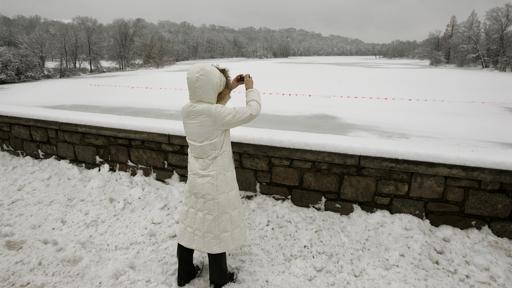For much of the 20th century, winter brought an annual ritual to Princeton, New Jersey. Lake Carnegie froze solid, and skaters flocked to its glossy surface. These days, the ice is rarely thick enough to support anybody wearing skates, since Princeton’s winters have warmed about 4 degrees Fahrenheit since 1970. It’s a lost tradition that Grace Liu linked to the warming climate as an undergrad at Princeton University in 2020, interviewing longtime residents and digging through newspaper archives to create a record of the lake’s ice conditions.
When the university’s alumni magazine featured her research in the winter of 2021, the comment section was filled with wistful memories of skating under the moonlight, pushing past the crowds to play hockey, and drinking hot chocolate by the frozen lakeside. Liu began to wonder: Could this kind of direct, visceral loss make climate change feel more vivid to people?
That question sparked her study, recently published in the journal Nature Human Behavior, that came to a striking conclusion: Boiling down data into a binary — a stark this or that — can help break through apathy about climate change.



“Over the river and through the woods” was written in 1844 about a sleigh ride on Thanksgiving Day in New England.
A hundred years later the film “White Christmas” was made about not having snow in the same region by Christmas.
and 2044 will be snow-free decembers at the rate we’re going in the midwestern u.s.
Already feeling that on the east coast.
Which is okay because kids don’t get snow days anyway, just WFH
What a fucking tragedy that is by the way. I have such fond memories of snow days stayed home playing in the snow
My potential grandchildren will never understand this comic
But Los Angeles was always 110° and miserable every summer, right?
Right?